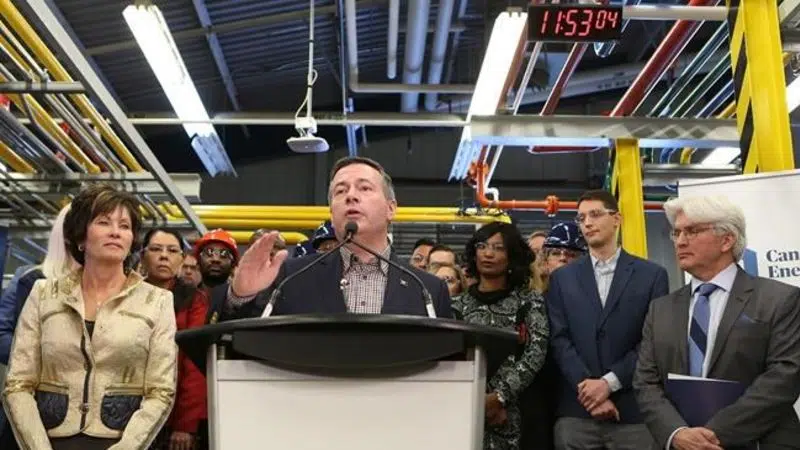
Alberta premier says energy war room will be respectful as it takes on critics
CALGARY — Alberta’s United Conservative government has opened its war room to take on critics it says spread misinformation about the oil and gas industry.
Premier Jason Kenney insists the $30-million Canadian Energy Centre is not a propaganda arm of the government and won’t trample on anyone’s right to free speech.
“This is designed to respond with facts to a campaign of misleading and dishonest propaganda that has come in large part from a highly co-ordinated campaign of foreign-funded special interests,” Kenney said Wednesday.
The war room is part of a multi-pronged approach that also includes a $2.5-million public inquiry into foreign funding of anti-oil advocacy groups.
